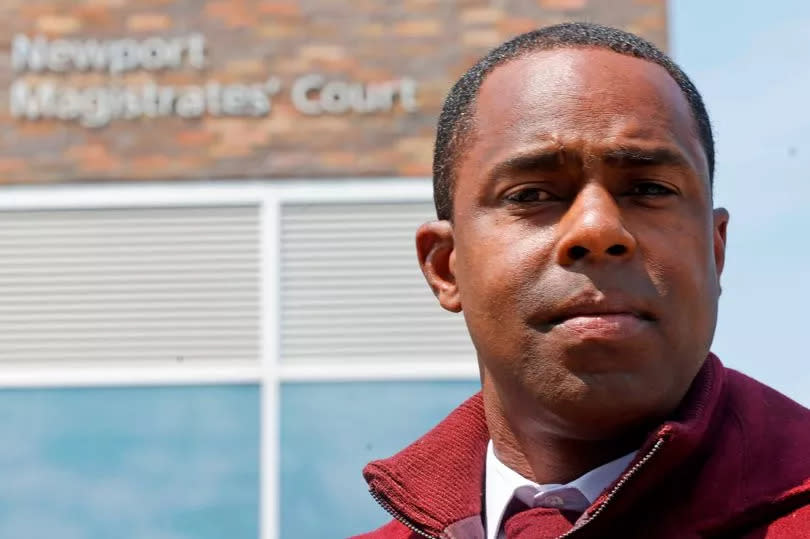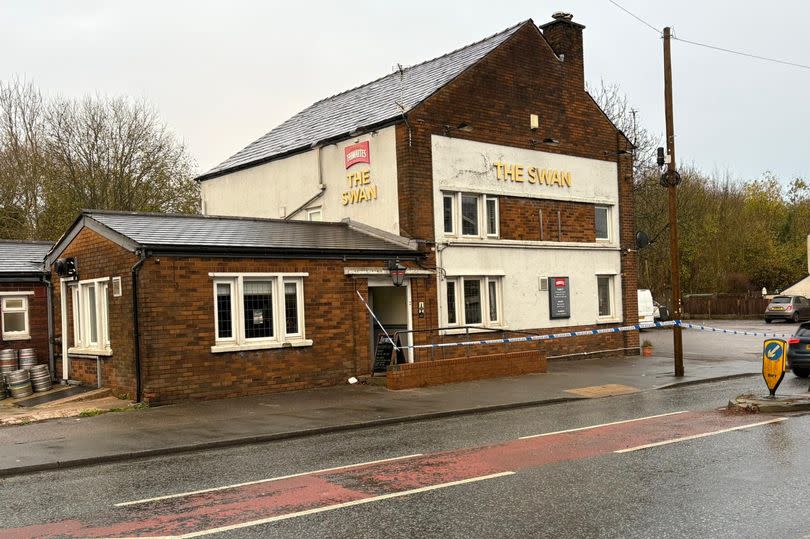A “political refugee” living in Wales has told of his relief after a private prosecution by a government agency in his home country was thrown out of a Welsh court. Dillian Johnson — a gay man living in Newport under humanitarian protection — was being prosecuted by Trinidad and Tobago’s state-owned water and sewerage authority (WASA).
The 42-year-old fled the Caribbean country three weeks after being shot in the hand outside his home in a December 2017 attack which he later told the UK media he believed was linked to a gay relationship he allegedly had with Trinidad and Tobago’s most senior judge. In 2019 the UK Home Office granted Mr Johnson humanitarian protection.
Mr Johnson, who lives in Newport, has for years been active on social media as a critic of alleged corruption in his home country’s government. He has drawn attention to issues like an alleged overtime and attendance fraud scheme at WASA. But Mr Johnson, once a manager at the water authority, landed in Newport Magistrates’ Court after his former employer launched a private prosecution. He was accused of committing offences under the UK’s Communications Act by posting offensive TikTok and Facebook videos about two WASA employees.
After two hearings at the court, the Crown Prosecution Service (CPS) said it would be taking over the case and immediately dropping it. For Mr Johnson this marked the end of a saga which has cost him thousands of pounds in legal fees and a job he enjoyed. He told WalesOnline: “That money was my downpayment for a house. The case brought stress in every way because when it became public knowledge my neighbours started to look at me funny. Even in my local corner shop, people knew.”
Out of respect for his recent workplace in south Wales, Mr Johnson asked us not to specify the job, but he said he quit the role as a result of the case. His employer had placed him on indefinite paid leave when the prosecution began and shortly afterwards he resigned. “I understood the position they were in because of the attention from the case. It just wasn’t a nice atmosphere to be in. I was not going to force a company I loved working for to be in this position.”


WASA went to extraordinary lengths to bring the prosecution, having found out where Mr Johnson lived by hiring a private investigator whose covert surveillance images could be seen in the court papers. The authority told the Trinidad and Tobago Guardian it had spent 300,000 local dollars (almost £35,000) on the case — and that was just by June, before the first court hearing.
Although in his eyes the outcome was a vindication of the UK justice system, Mr Johnson believes there should be learnings from the case. “It should be that any time covert surveillance or anything of this nature is to be used against someone who has been granted political refuge, they should have to approach the UK authorities for permission. I am not saying the wheels of justice should stop turning but there should be checks and balances.”
Mr Johnson was charged with posting videos that were “grossly offensive or of an indecent, obscene or menacing character”. He said the first solicitor he spoke with advised him to accept an offer from WASA to drop the prosecution if he stopped his social media activism. The solicitor warned him to think about how a conviction could affect his residency in the UK. But Mr Johnson, who claimed the offer was “designed to scare and intimidate”, switched lawyers and fought the charges in court. Meanwhile, WASA was being represented by major UK law firm JMW Solicitors.
At the first hearing, in August, Mr Johnson’s barrister Scott Tuppen argued WASA did not have the standing to bring a private prosecution in Wales, adding: “Effectively it is an arm of a foreign government as opposed to a company or indeed a real person. The argument is whether a foreign government can bring what would be a public prosecution in its own country through the private prosecution system in this country. The second issue is that the defendant is politically active in Trinidad and Tobago and is effectively a political refugee. He has been granted humanitarian protection status here in the UK and fled his home country having been seriously injured — indeed he was shot — because of his sexual orientation.”

The following month there was another hearing. District Judge Sophie Toms was unhappy to learn that the witnesses for the prosecution would not be attending because WASA was not willing to pay for their travel, Mr Johnson said, adding: “I knew which way it was going because of how annoyed Judge Toms was.” The next hearing had been scheduled for November but it never took place because of an intervention by the CPS.
“I received a call from barrister and he made a joke,” said Mr Johnson, who had been driving at the time of the call. “He asked did I want the good or the bad news. I said ‘give me the bad news’ and he said I wouldn’t have to attend court again. I asked why, and he said the matter had been thrown out. At that moment I had to pull over to the hard shoulder of the motorway to take a breath. It was just so much to comprehend.”
The next day the CPS sent a letter to Mr Johnson which read: “I write to confirm that the Crown Prosecution Service has intervened in the proceedings and accordingly has taken over conduct of the prosecution against you. Applying published policies the Crown has reviewed the case and the decision has been made to discontinue the proceedings.”
Mr Johnson believes WASA had expected him to simply agree to stop his social media activism and had not been prepared for a case that would require witnesses to be flown across the world. Asked if he had feared for his immigration status, he said: “It did make me feel nervous but I knew the allegation wasn’t the truth. I say things as I see them and where there is wrongdoing I will always speak on it. This just shows I was on the right track.”
He did not specify his total legal bill but said he would be exploring options to recover costs from WASA. Mr Johnson thanked his barristers David Leathley, Michael McGarvey and Scott Tuppen for their hard work. For the latest Welsh news delivered to your inbox sign up to our newsletter
EMEA Tribune is not involved in this news article, it is taken from our partners and or from the News Agencies. Copyright and Credit go to the News Agencies, email news@emeatribune.com Follow our WhatsApp verified Channel





